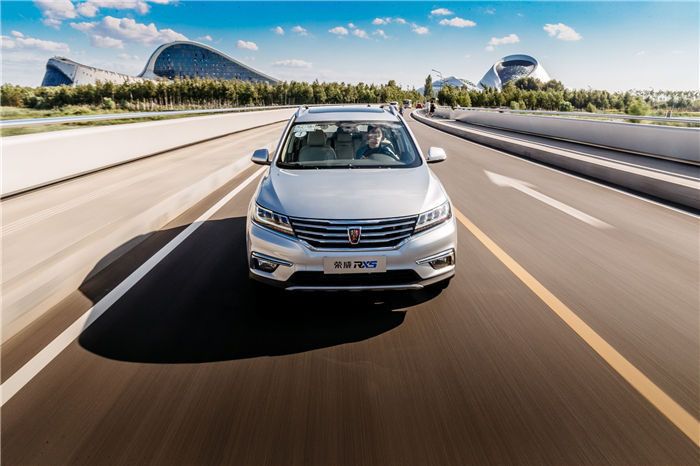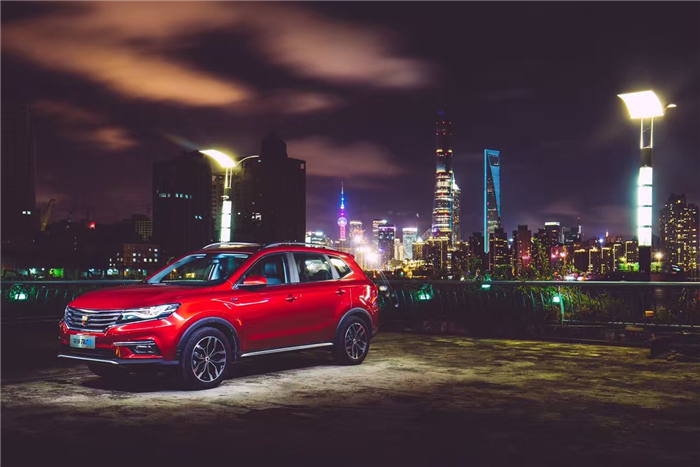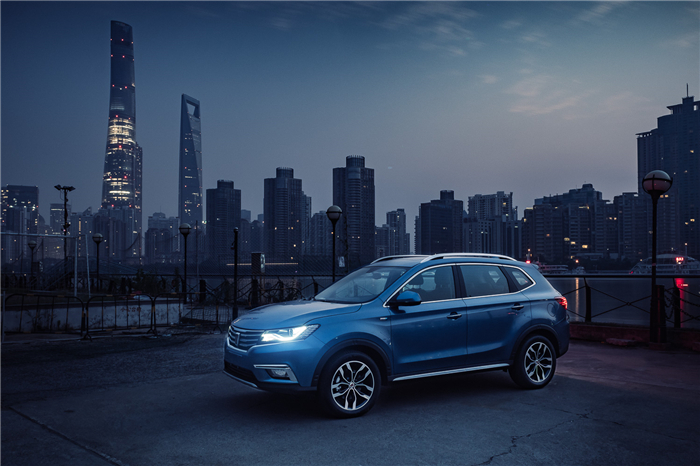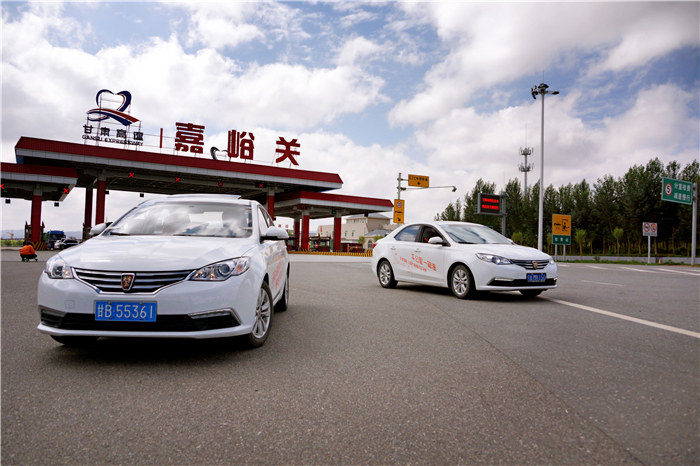SAIC Motor’s Roewe sees fastest sales growth in August in China
August is a traditionally slow sales month, but Chinese auto brands led by SAIC Motor’s Roewe saw impressive sales, this year.
In August 2016, SAIC Roewe posted sales totaling 20,813 units, up 205 percent from the same period of 2015, one of the fastest growing among China’s self-owned brands in the month. From January to August, Roewe’s sales doubled, reaching 106,000 units, up 97 percent year-on-year, which was in sharp contrast to the overall slow growth of the domestic car market.
Roewe’s sedans, SUVs and new energy vehicles all surpassed their counterparts in sales by a large margin. Roewe RX5, the world’s first mass-produced car on the internet, delivered almost 10,000 units in the first month from the date it hit the market and more than 40,000 units ordered in less than two months. Sales of Roewe 360 in the first eight months of 2016 totaled about 50,000 units, despite a year-on-year decline seen by the domestic sedan market. Roewe new energy cars saw sales rise 138 percent year-on-year in January-August, thanks to the release of new products such as Roewe e950, continuing to be the market leader in the domestic new energy sector.
Moreover, Roewe RX5’s price also exceeded the Chinese brands’ usual high range of between 100,000 and 150,000 yuan ($14,370-21,555), and seized a large market share previously held by joint-venture brands, thus attaining a “small goal” hardly possible for other Chinese brands. Those achievements indicated Roewe was on the fast track for growth in both quality and sales. With the help of innovative marketing, Roewe cars became popular on the market to their better performance and lower price.

Roewe RX5
In April 2016, Roewe RX5, the world’s first mass-produced car on the internet was unveiled at the 2016 Beijing motor show, drawing close attention from across the nation. In July, it hit showrooms and became the top choice among SUVs priced between 100,000 to 200,000 yuan, thanks to its high quality and cost-effectiveness. In less than two months from its release, RX5 saw orders top 40,000 units and became the “Chinese Brand Car of the Year 2016”, indicating the attractiveness of internet-based products. The fast-selling internet version, priced between 148,800 to 186,800 yuan, signaled RX5 now fell in the core price range of joint-venture SUVs and that the SUV market could face a reshuffle as the RX5’s hot-selling trend continued.

Despite buyers across the nation queued up for the new car, RX5’s price was not hiked. On the contrary, it announced preferential policies including “basic service and basic data package free of charge during the car’s lifetime” and exempting RX5 30T buyers of 7,000 yuan in purchase tax (before December 31, 2016). To cope with huge market demand, SAIC’s Shanghai Lingang plant stepped up production and Nanjing plant intensified efforts to make preparations for the production of RX5s to ensure early delivery of the car to every buyer.

Today, cars have become another important carrier of mobile intelligent technology following cell phones. To users heavily involved with the internet, a car on the internet is a must-have. As a new-generation product of SAIC’s innovation, RX5 is equipped with the YunOS for Car, which gives the user to an independent ID. The user can lock or unlock the car, switch on the air conditioner, and heat the seats through remote control, or operate the air conditioner, play music and turn on the navigation system through voice control. On the other hand, the YunOS can “accumulate and learn from” the user’s habits and, with the deepening of “exchanges” with the user, constantly make improvements to provide more accurate and personalized services.
According to feedback from users, RX5’s overall design, interior, powertrain and comfortability are almost on a par with medium and high-end models of joint-venture brands, but RX5 is considered more cost-effective due to its lower pricing.
RX5 is equipped with SAIC’s world-class powertrain NetBlue, whose technology is two generations ahead of SUVs of the same class. RX5 30T has a 2.0L turbocharged direct injection engine, which can deliver a maximum power of 220 hp and peak torque of 350 Nm. Major performance of the engine overtakes that of mainstream joint-venture SUVs of the same class, such as Envision, Tiguan, Tucson and KX5, and almost parallels that of mainstream joint ventures’3.0L models. Besides, RX5 employs a Porsche chassis setup, GKN Driveline's On-Demand 4WD System, fully independent suspension system and high-speed CANBUS to improve driving experience in all aspects.

Roewe 360
Thanks to SAIC’s world-class powertrain NetBlue, CarPlay access, spacious room and fashionable appearance, nearly 80,000 Roewe 360s were sold in the past year, against the backdrop of a declining domestic sedan market. Of its total sales, 90 percent came from the versions supporting CarPlay, making Roewe 360 the global champion in this respect and win favor from consumers.
Products’ fast upgrading stimulated sales to a large extent. In April 2016, after the successful application of Apple CarPlay on Roewe 360 and other hot-selling models, Roewe took the lead in rolling out the SDL system, which is compatible with Android phones, to bring more joyful and safer motor life to even more consumers. In May, Roewe 360 debuted a smart screen version, which gave another boost to its sales, due to better performance, more options and higher quality.
Furthermore, Roewe 360 beat hot-selling joint-venture models with a low complaints-to-sales ratio of merely 0.025 percent in the first quarter of 2016, according to 12365auto.com, a Chinese third-party auto quality portal, and became the top quality brand in of its category. Additionally, in a contest held at the Hexi Corridor in northwest China’s Gansu province, one full tank of fuel lasted Roewe 1,496 km, a record low of 3.7L/100km, compared to the average of 3.9L/100km.
Roewe 360 has overtaken joint-venture models to become the top choice for family cars due to its better performance and lower price. Some of the most impressive features include spacious room, powerful engine, low fuel consumption and compatibility with Apple CarPlay and other cell phone connection solutions.
In future, Roewe will continue to develop more new products and tap the potential in both traditional and new energy sectors. It will rely on SAIC’s NetBlue and NetGreen systems to improve products and branding, and make progress in conventional, internet-based and new energy vehicles so as to provide consumers with products of higher quality and value.

